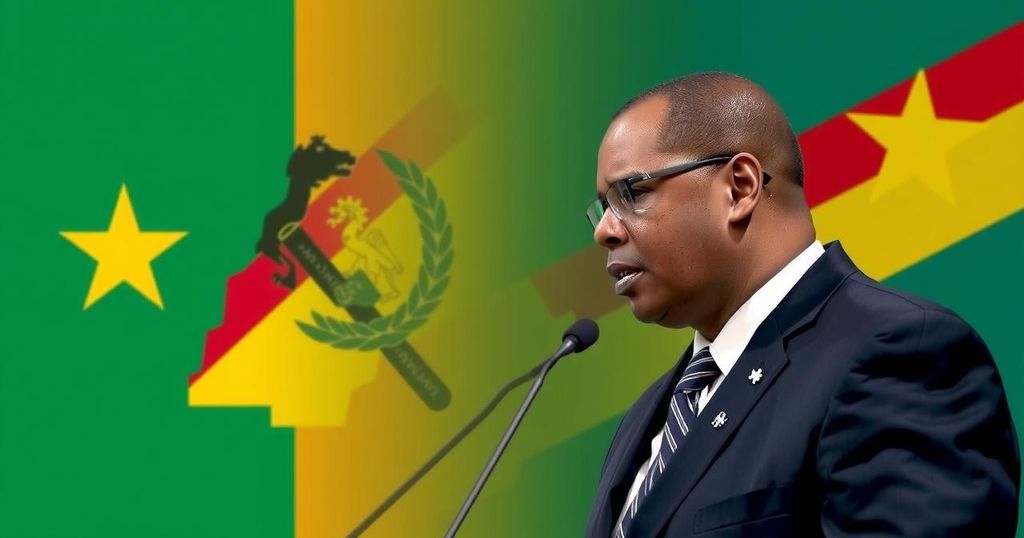Zimbabwe Ambassador Claims Frelimo’s Election Victory Is Legitimate Despite Fraud Allegations

The Zimbabwean Ambassador to Mozambique, Victor Matemadanda, proclaimed that Frelimo’s victory in the October 9 elections was legitimate, despite claims of voter fraud from opposition leaders and international observers. He criticized the dissenters as people organized to commit crimes, highlighting the tensions in Mozambique’s political landscape. These remarks reflect broader concerns about electoral integrity and governance in the region.
On October 9, Mozambique’s governing party, Frelimo, was declared the winner of the country’s contested elections, according to Zimbabwe’s Ambassador to Mozambique, Victor Matemadanda. In a media interaction that included representatives from the Voice of America, Matemadanda asserted that the elections were conducted democratically notwithstanding claims of voter fraud from opposition figures and international observers. Furthermore, he characterized the opposition leaders and activists advocating for protests against the electoral results as individuals “that are organized to commit crime.”
This assertion comes amid a backdrop of heightened tensions in Mozambique following the electoral exercise, where public discontent has been voiced against the electoral process and alleged corruption. Critics argue that systemic issues within the electoral framework have allowed Frelimo to maintain a tight grip on power, thereby delegitimizing the electoral process in the eyes of some voters and observers. The political climate in Mozambique has been fraught with allegations of unfair practices and suppression of dissent, raising serious concerns about the integrity of the democratic process.
Ambassador Matemadanda’s comments reflect a broader narrative often seen in regions experiencing electoral strife, where governing authorities reject allegations of misconduct while painting dissenters in a negative light. The dichotomy of perspectives surrounding the elections illustrates the complexities of governance and opposition dynamics in Mozambique, further complicating the socio-political landscape.
As Mozambique grapples with these challenges, the role of international observers and the credibility of electoral processes remain vital in assessing the nation’s commitment to democratic principles and human rights. The ongoing discourse surrounding the elections underscores the necessity for continued dialogue and transparency to ensure a stable political environment in the country.
Mozambique, a nation in Southern Africa, has a long history of conflict and governance challenges. The Frelimo party, which has been in power since the end of the civil war in 1992, has faced criticism over its electoral practices and the alleged suppression of opposition. The recent elections held on October 9 have intensified scrutiny over the electoral process, with opposition parties contesting the results and calling for protests. This political unrest raises questions about the health of democracy in Mozambique and the role of regional allies in navigating these issues. The statements from the Zimbabwean ambassador highlight the complexities of international perspectives on governance and opposition in Africa.
In conclusion, the recent statement by Zimbabwe’s Ambassador to Mozambique emphasizes the contrasting viewpoints surrounding the October 9 elections. While Frelimo’s victory is portrayed as valid and legitimate, the ongoing opposition outcry and claims of voter fraud present significant challenges to the democratic fabric of the nation. The situation calls for a careful assessment of Mozambique’s political environment and the structures in place to uphold democratic principles.
Original Source: www.voaafrica.com







